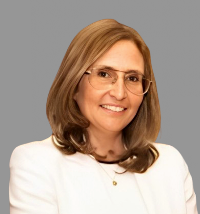FEATURED PAPER
By J. Rodney Turner, DPhil
United Kingdom
and
Nathalie Drouin, PhD
Canada
Abstract
Successful megaprojects show common features. In this article we describe those common features and suggest how they contribute to the success of megaprojects. Unfortunately, the inverse of the common features are often the traditional or popular ways of doing projects. So many megaprojects are managed using the inverse approaches, and when they inevitably fail, the managers think they have done nothing wrong. So, they externalise their problems and go looking for alternative explanations of the failure, including fragility and complexity.
Introduction
Drouin & Turner (2022) in almost every chapter give an example of a successful megaproject. Megaprojects can be delivered successfully. The case studies explored by Drouin & Turner have several common features: The management team:
- use principal-steward contracting rather than principal-agent
- use the economically most advantageous solution rather than the cheapest
- treat internal stakeholders with respect
- treat external stakeholders with respect
- manage complexity
- do what is best for the project rather than each person or group individually
The case studies used by Drouin & Turner are listed in Table 1.
Unfortunately, a lot has been written about how difficult megaprojects are to deliver, (Flyvbjerg, 2017), with complexity and fragility being blamed. So much is written that it is easy for the managers of megaprojects to externalise their problems, and say, “Not my fault,” when they fail. But well managed megaprojects can be successful. In this paper we review the common factors associated with successful megaprojects, and suggest that by following these six features, megaprojects are more likely to be successful. But we would also go one step further and say that by dong to inverse in each case almost guarantees failure. Therefore, the managers of megaprojects should adopt these six features, and stop blaming fragility and complexity when they do the opposite and their project inevitably fails.
Dean (2010) defines three levels of governmentality:
- Authoritarian: Governors clearly articulate to internal stakeholders the means and ends of achieving the project objectives. The governors control by defining desired behaviours, (Ouchi & Maguire, 1975).
- Liberal: Governors draw on the rationality and economic thinking of those they govern, by using incentives. Decisions are based on economic principles with a marketing orientation. The governors control by defining desired outputs, (Ouchi & Maguire, 1975). The emphasis is on persuasion.
- Neo-liberal: Governors build on the self-governance of individuals by setting the values of the organization and encouraging managers to steer themselves in the desired direction. This approach builds on the managers collective interest and willingness to consent. By setting the contextual framework, managers behaviours are shaped but not determined. The governors control by defining values.
Table 2 shows the impact of the three levels of governmentality on governance and management, (Turner, 2022). Megaprojects should adopt neo-liberal governmentality, and so adopt governance associated with the right-hand side of the table. People working on the projects should be collective and altruistic. They should do what is best for the project. Later we suggest ten cultural commitments associated with being collective and altruistic. The aim is to achieve organizational success, not individual reward. Control is by building value for all the stakeholders and developing cooperations and trust. But also, the manager should define the outputs required of the project team, not define how they should behave. That is also associated with the adoption of principal-steward contracting. On particularly complex projects, alliance contracts will be adopted. Motivation is associated with the top level of Maslow’s hierarchy. We look for intrinsic rewards based on achievement. Leadership is participative. The governance paradigm is based on the shareholder school of governance, and managing outputs, and so is cooperative, (Müller, 2009)
We now consider the six necessary conditions for success.
More…
To read entire paper, click here
How to cite this paper: Turner, J. R. and Drouin, N. (2025). Six Necessary Conditions for the Success of Megaprojects; PM World Journal, Vol. XIV, Issue V, May. Available online at https://pmworldlibrary.net/wp-content/uploads/2025/05/pmwj152-May2025-Turner-Drouin-Six-Necessary-Conditions-for-Success-of-Megaprojects-2.pdf
About the Authors

Prof J. Rodney Turner, DPhil
Former Editor, IJPM
Former Chair, Hon Fellow, APM
Former President & Chair, Hon Fellow, IPMA
United Kingdom
![]()
Professor J. Rodney Turner, MA, MSc, DPhil (Oxon), BE (Auck), CEng, FIMechE, FAPM, MInstD is a visiting professor at the University of Leeds, and honorary professor at the University of Warwick, UK. Most recently he was Professor of Project Management at SKEMA Business School, in Lille France, where he was Scientific Director for the PhD in Project and Program Management, as well as SAIPEM Professor of Project Management at the Politecnico di Milano (Italy), and Professor and High-End Foreign Expert at Shanghai University (China).
Rodney is the author or editor of eighteen books, including The Handbook of Project-based Management, the best-selling book published by McGraw-Hill, and the Gower Handbook of Project Management. He was editor of The International Journal of Project Management for 25 years until 2017. His current research interests cover the relationship between governance and decision making on projects, stakeholders and customer experience, and the relationship between megaprojects and post-modernism.
Rodney is Honorary Fellow and former chairman of the UK’s Association for Project Management, and Honorary Fellow and former President and Chairman of the International Project Management Association. In 2004 he received a life-time research achievement award from the Project Management Institute, and in 2012 from the International Project Management Association.
Prof Turner, who is now retired, can still be contacted at rodneyturner@europrojex.co.uk

Nathalie Drouin, PhD
École des Sciences de la gestion
Université du Québec à Montréal
Montréal, Canada
![]()
Nathalie Drouin holds a PhD from Cambridge University, UK, a post-doctorate École Polytechnique de Montréal, an MBA at HEC Montreal, a bachelor’s degree in law, University of Sherbrooke. From 2016 to 2023, she was the Executive Director at KHEOPS, an International Research Consortium on the Governance of Large Infrastructure Projects and she is now the Chairholder of the research chair INFRA-S. She is also the Editor-in-Chief of the International Journal of Managing Projects in Business, a full professor in Project Management at the Department of Management, ESG UQAM and Adjunct Professor at University of Technology Sydney (UTS), Australia.
Her research looks at governance of major infrastructure projects, the integration of non-financial benefits, social impacts of infrastructure projects, organizational project management, balanced leadership in projects and megaprojects. She is a member of the Board of Directors of CARGOM. She is also a member of the Global PM World Academic Advisor team and the Program Advisory Council, PM Program at Northeastern University in Toronto. She was Distinguished Visiting Scholar at UTS to share best practices in the structure and governance of university research.
Mrs. Drouin was vice-dean of research at ESG UQAM and director of graduate programs in project management. She has practiced law in international law firms and acted as a consultant to companies and government agencies in the areas of strategy and project management. She received four prestigious research awards: the IPMA Global Research Award (2019) for her work on balanced leadership in projects; the Walt Lipke Award (Australia) on the governance and control of major projects; the 2021 PMI Cleland Award for the book Organizational Project Management: Theory and Implementation and; the 2022 PMI Research Achievement Award. These awards were obtained in collaboration with her colleagues Ralf Müller, BI Norwegian Business School and Shankar Sankaran, University of Technology, Sydney, Australia.
Dr. Drouin can be contacted at drouin.nathalie@uqam.ca









